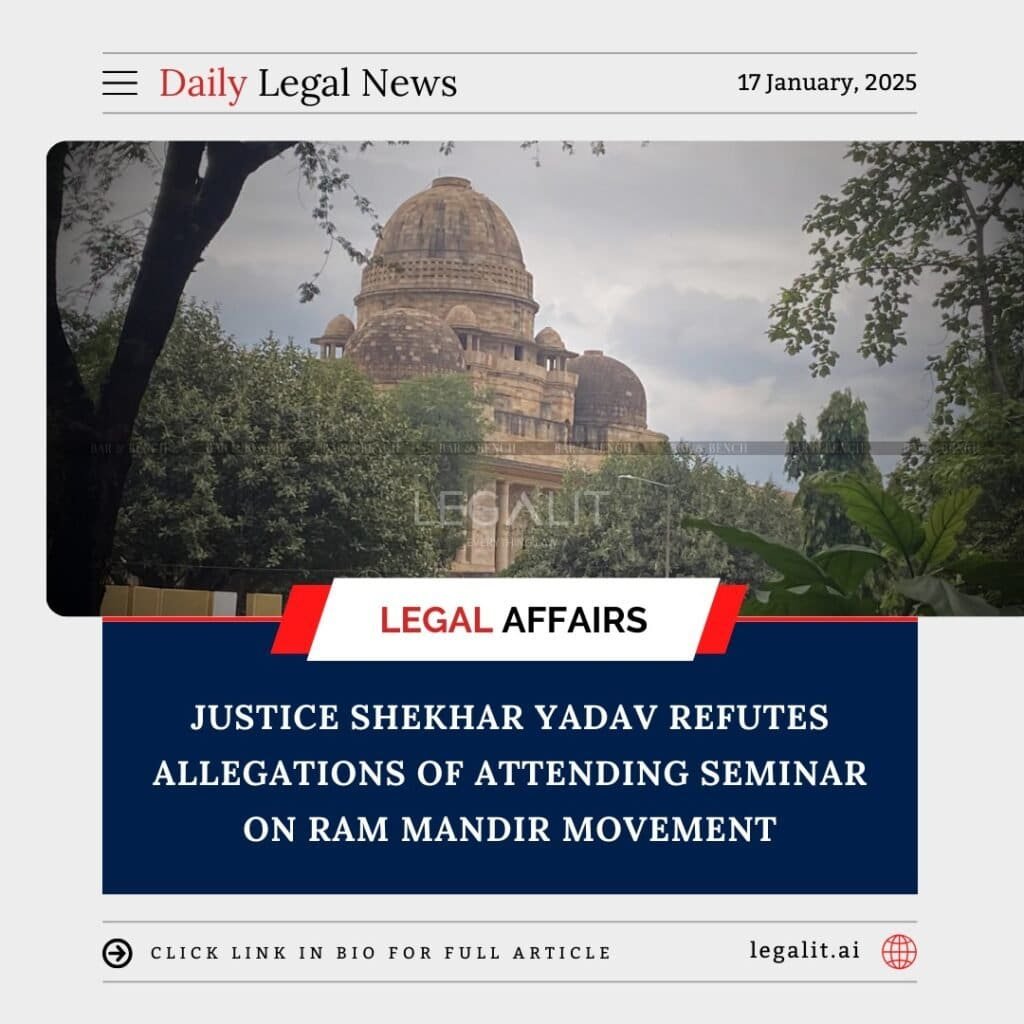
Background
Justice Shekhar Yadav of the Allahabad High Court has categorically denied allegations of his participation in a seminar purportedly associated with the Ram Mandir movement. The controversy arose after reports surfaced claiming that Justice Yadav attended an event linked to the movement, raising questions about judicial impartiality and propriety.
Allegations and Context
The allegations suggested that Justice Yadav had been part of a seminar discussing topics related to the Ram Mandir, potentially reflecting a bias on a matter of significant public and legal interest. Critics argued that any association with such events could undermine public confidence in judicial neutrality, especially in cases involving religious or political sensitivities.
Justice Yadav’s Rebuttal
Justice Yadav, in his statement, clarified that:
- Non-Attendance: He did not attend any seminar linked to the Ram Mandir movement or any event of a similar nature.
- Judicial Integrity: He emphasized his commitment to maintaining impartiality and upholding the judiciary’s ethical standards.
- Misinformation: Justice Yadav attributed the claims to misinformation and expressed disappointment over attempts to malign his reputation without evidence.
Importance of Judicial Neutrality
The Indian judiciary’s credibility hinges on the perception of its impartiality. Any allegations suggesting a judge’s involvement in politically or religiously sensitive issues can erode public trust. Justice Yadav’s swift denial underscores the judiciary’s broader commitment to maintaining an unbiased stance in all matters.
Broader Implications
The controversy highlights the following concerns:
- Judicial Accountability: Judges are often scrutinized for their public and private engagements to ensure they remain free from perceived biases.
- Media Responsibility: The role of media in reporting allegations without substantive evidence can contribute to unnecessary controversies.
- Public Confidence: Misinformation about judicial conduct can have lasting effects on public trust in the institution.
Conclusion
Justice Shekhar Yadav’s prompt and unequivocal denial seeks to address concerns about his impartiality and reinforces the judiciary’s dedication to ethical conduct. The incident serves as a reminder of the challenges faced by judges in navigating public perception while fulfilling their constitutional duties.